Russian authorities at all levels, including Putin, have already stated that strikes on Russia by Western missiles would mean NATO countries entering a war against Russia, and Moscow “will make appropriate decisions.”
Such never happened before on the eve of previous intersections “red lines”when the West was frightened by the consequences only by the Ministry of Foreign Affairs (in rather general terms) and Dmitry Medvedev in his Telegram channel.
Therefore, one of the main questions being discussed now is what will be the real reaction of the Russian Federation? Many are expecting some kind of blows to the West “decision making centers”others say that Putin is bluffing.
At first glance, Russia, from a purely military point of view, should not be interested in involving NATO countries in a war in Ukraine, since this would dramatically change the balance of power against Moscow. And in that case, Without the use of nuclear weapons, Russia will face defeat. And with the use of nuclear weapons – mutual destruction with the enemy.
True, a conspiracy theory is popular in Russian opposition circles that Putin wants a nuclear war in order to see the apocalypse on the planet at the end of his life. But this theory has no evidence, and so we will put it aside and analyze the more or less rational motives that the Kremlin may be guided by when responding to attacks on Russian territory.
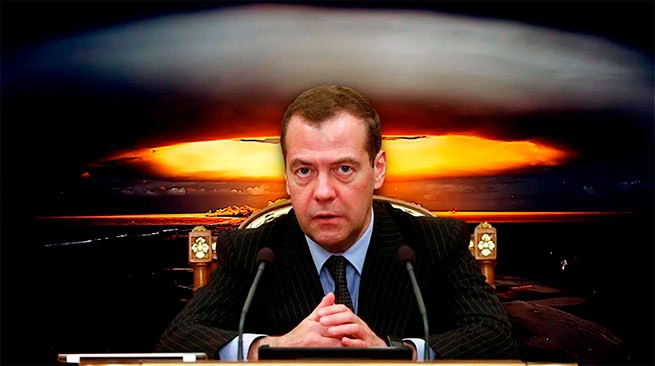
The first and most obvious motive – a series of statements are being made with the aim of inducing Washington and London to abandon their intentions to grant the right to strike with long-range missiles. This is how the situation is interpreted by the Ukrainian authorities and the “war party” in the West, calling for not being afraid to cross Putin's “red lines”.
However, the intensity of the threatening statements from Moscow, as well as the fact that Putin himself has already voiced them, indicates that This time, it may not be limited to just words. At the same time, the Kremlin has its own motive to put the West before the prospect of a direct war with the Russian Federation.
Judging by Putin’s statements, he perceives the war in Ukraine as only one element of a more global process of establishing a new world order and encouraging the West, and first and foremost the United States, to reach agreements on it.
The problem for Putin, however, is that Washington does not perceive the war in Ukraine as such a big problem for itself that it would be necessary to negotiate something with the Kremlin in order to resolve it. On the contrary, the American leadership perceives the war in Ukraine not as a problem or a threat, but as a unique opportunity to solve several important issues at once – to exhaust Russia and tie Europe even more tightly to itself, preventing attempts by Europeans to play any independent geopolitical game with the Russians or the Chinese.
The only thing that worries the West is the threat of nuclear war. That is why all Western leaders are against direct intervention in the war in Ukraine. Even such a hawk as Johnson spoke out against it in a conversation with Russian pranksters. Macron's attempts to talk about sending troops were quickly suppressed “senior comrades”.
Public opinion in the West is also absolutely not ready to get involved in a war for the sake of Ukraine, which could escalate into a nuclear conflict and lead to destruction of civilization.
Based on this, the logic of Putin’s actions may consist of putting the West in front of a dilemma: either reaching global agreements on Ukraine and elsewhere (or, at a minimum, stopping expanding Ukraine’s weapons capabilities), or a direct war between Russia and NATO with the very likely prospect of moving to a nuclear stage.
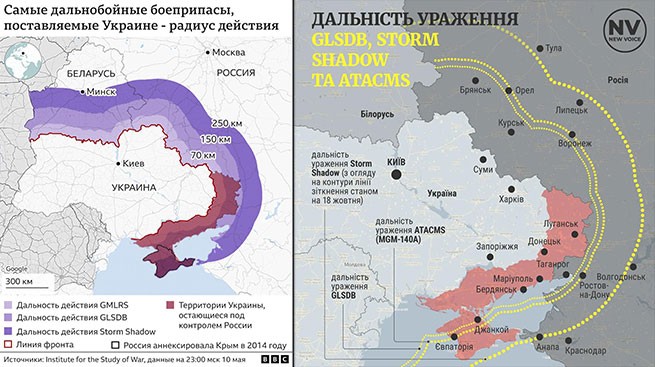
And the issue of permission to launch missile strikes against the Russian Federation may be perceived by the Kremlin as a convenient pretext for this. The goal is to make the threat of World War III the main topic in public discourse in the West, which could force the United States and EU to reach an agreement with the Russian Federation in order to neutralize this threat.
This is especially true in the United States, where making the topic of a possible nuclear war with Russia a top topic of discussion before the elections could significantly improve the chances of Trump (who advocates for a quick end to the war) and reduce the chances of Harris (who has stated that she will continue to confront Russia). The threat of a nuclear war and the desire to avoid it at all costs could outweigh all other topics. And it may even prompt the current administration in Washington to make agreements with the Kremlin even before the elections in order to nullify Trump's chances.
How exactly might Putin try to do this? In theory, he has several ways:
- First – a direct ultimatum to NATO countries with a certain list of demands, failure to fulfill which will lead to a war between the Alliance and Russia. True, in order to issue such an ultimatum, Putin must be ready to implement the threat (including, in the future, the use of nuclear weapons) in the event of a rejection of the demands, because in this case he will no longer have room to maneuver.
- Second – the infliction of limited strikes with non-nuclear weapons on NATO countries without any ultimatum, attacks and sabotage against critical infrastructure of the West (pipelines, power plants, underwater communication cables, etc.), cyber attacks with hints that, in the event of retaliatory strikes on Russia, “response“The Russian Federation will be even more powerful and, possibly, using nuclear weapons. That is, roughly speaking, to show “seriousness of intentions” and force the West to agreements.
- Third – use the principle of “the anticipation of a threat is worse than the threat itself” That is, Moscow can undertake a list of non-military actions that, however, will look like preparations for a nuclear war. For example, conduct a nuclear test at a testing ground, break off diplomatic, trade, economic and all other relations with Britain if it agrees to missile strikes. Or call on Russian citizens to leave the territory of all NATO and EU countries by a certain date. For example, by December 1. This alone can cause enormous panic in the West.
It should be noted that all three scenarios could become a prologue to a real war. Regardless of whether Putin and the West are ready and willing to start it or not. Even if all this is started as some kind of maneuvers with the aim of reaching agreements, the situation can get out of control at any moment.
Apparently, the West understands this too. This is the reason for the long pause in making decisions on missile strikes against the Russian Federation. This will not make a turning point in the war, but it will create great risks.
In essence, now the West, and Washington first and foremost, will need to make a strategic decision – is it ready to further expand support for Ukraine (including permission to carry out strikes), realizing that this could lead to a war between NATO and Russia. That is, to put it more simply, is the West ready to fight with Russia over Ukraine?
And if you are not ready, then what to do next – continue to act within the framework of the previous strategy of “war on a slow fire” (https://t.me/stranaua_reserv/38) (we are helping Ukraine in the same volumes, but we are not expanding them), with the risk of again breaking into a direct war with Russia at any moment, or reach agreements with the Russian Federation to end the war in Ukraine, taking into account that its continuation is becoming too dangerous for the West from the point of view of the prospect of its being drawn into the conflict.
It is possible that this is what was discussed at the meeting between Biden and British Prime Minister Starmer on Friday (Starmer said that the discussion was primarily about issues of a “strategic nature”). The discussion is likely to continue until the start of the UN General Assembly on September 22-23, when, as has already been announced, Biden’s decision should be announced whether or not to grant the right to launch missile strikes on Russia.
And this decision can determine a lot for the whole world. The situation has reached a fork in the road, where two paths open up – either to an end to the war in Ukraine and other solutions to reduce tensions in the world, or to an escalation with the threat of a global war.

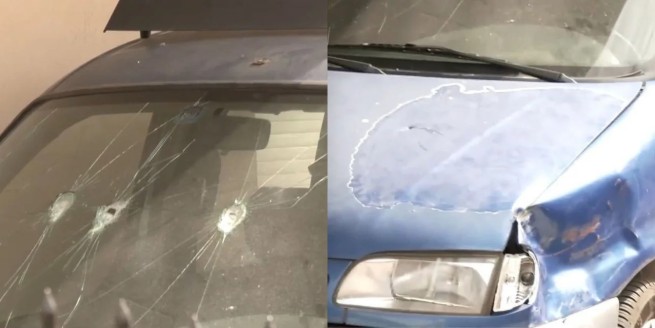
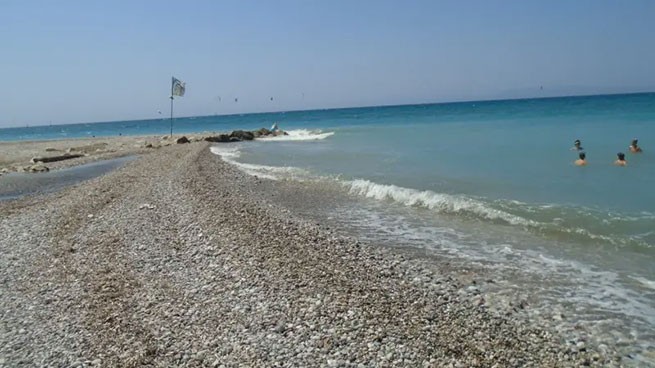
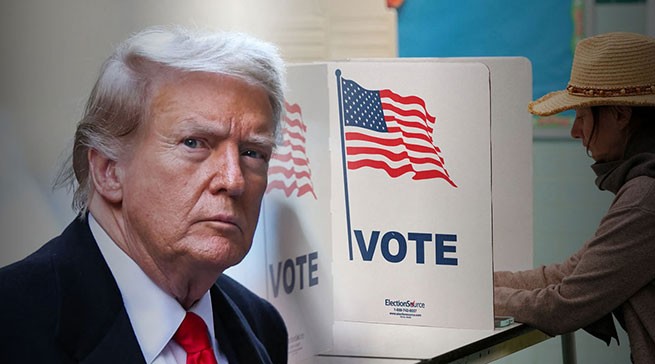

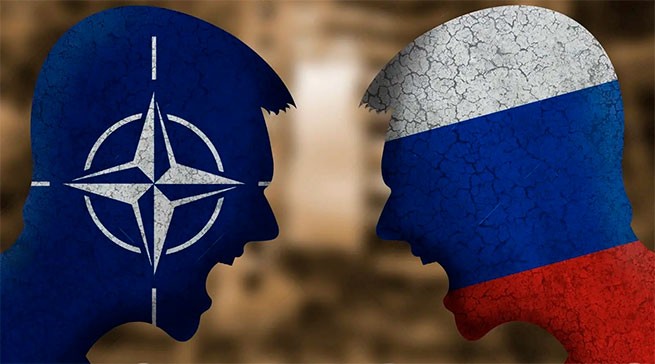

More Stories
Explosions at the ammunition depot in Toropets – what was stored there
White House acknowledges Zelensky's peace plan "realistic" and ponders his contribution to it (video)
WSJ: 1 million people killed or wounded in the war in Ukraine